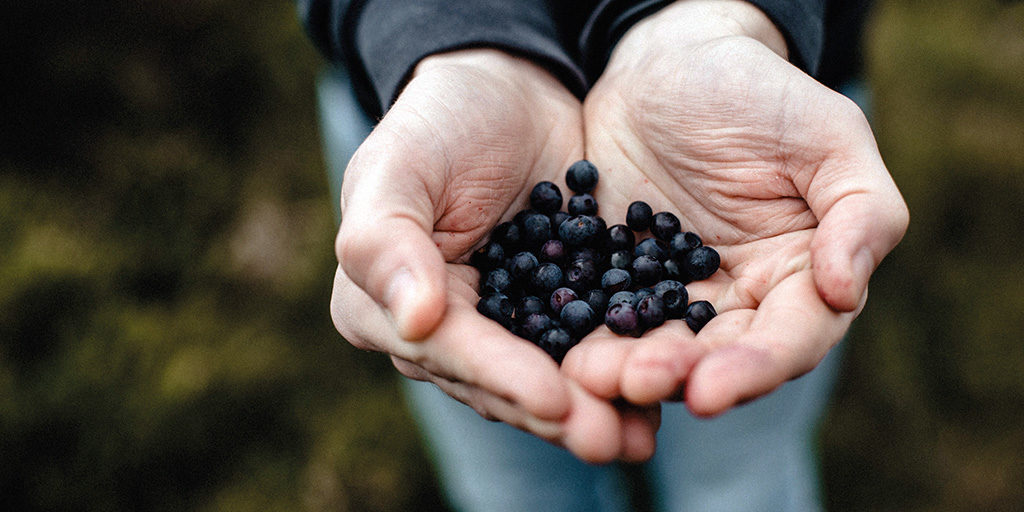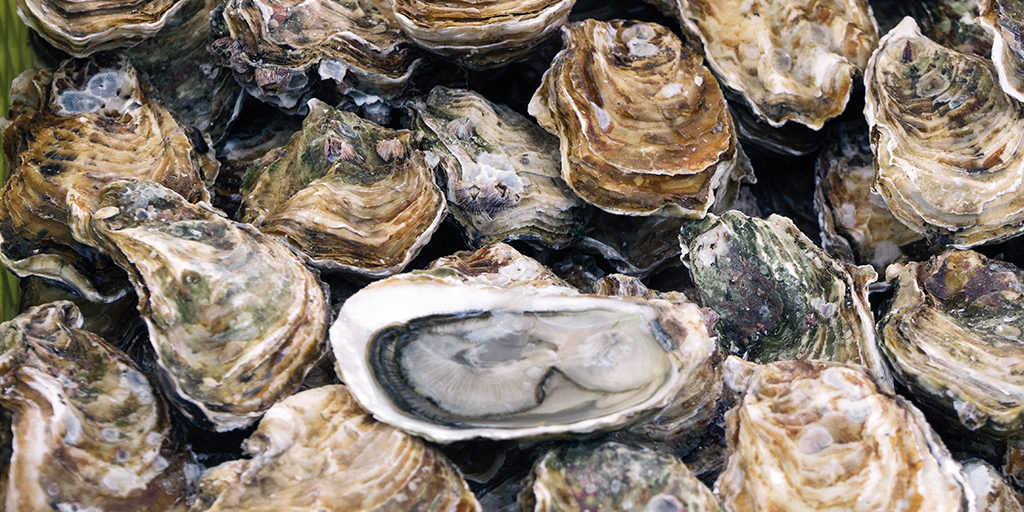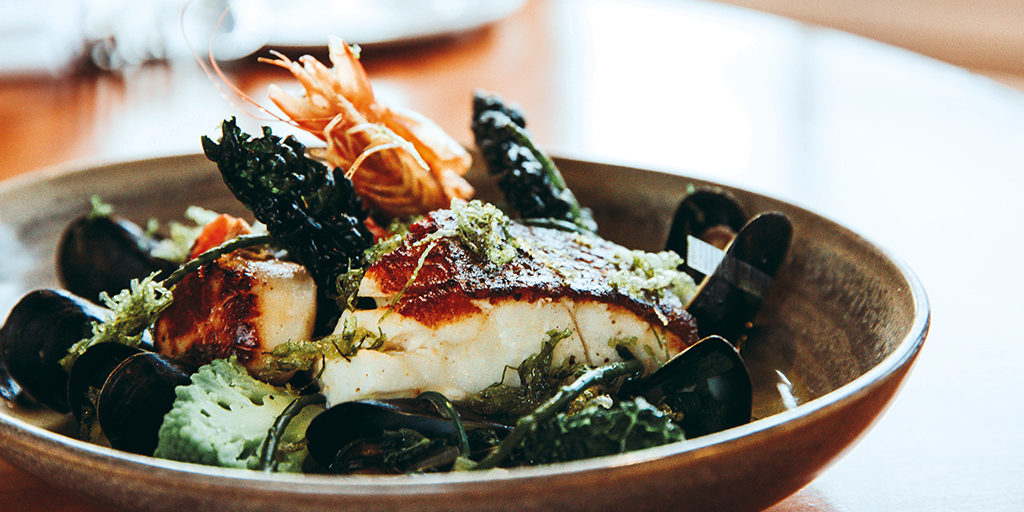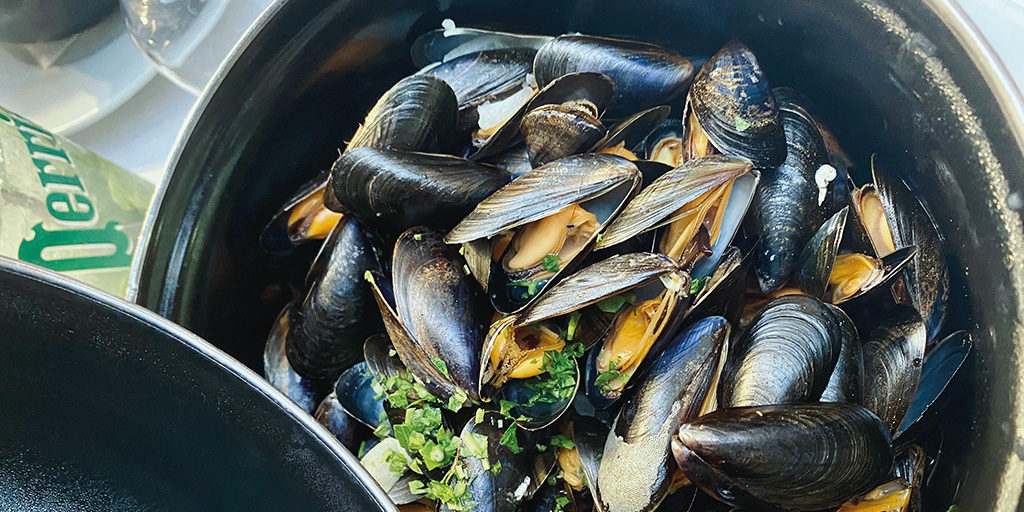

Fruits of the forager
Jude Kereama puts a foodie slant on outdoor adventure, exploring the Lizard Peninsula as a forager’s paradise.
If you’re looking for an outdoor adventure, there’s no better place to go than the Lizard Peninsula. England’s most southerly point, the Lizard is full of gorgeous coastal walks, beautiful beaches with turquoise seas, surf, rivers, hidden coves and woodland. After cycling the peninsula many times, I can certainly vouch for its beauty!
But for me, where it really comes into its own, is in the abundance of ingredients that grow there. With such a diverse landscape, not only is it an adventurer’s playground, it’s also great for creative chefs in search of something truly local, providing a seasonally changing treasure trove of ingredients as varied as the landscape itself.
In the spring – one of my favourite times to forage – you have the emergence of lots of new green ingredients. Wild garlic is up there with the very best of them, however all the green vegetables that grow in the spring are worth taking the time to forage. Things like Alexanders, three-cornered leeks, nettles, chickweed, dandelion, wood sorrel, cleavers and gorse – all of these are in abundance, and there’s lots you can do with them. Mushrooms will also be rearing their heads in the fields and woods, and it’s a great time especially to pick St George mushrooms, field mushrooms, and giant puff balls. These all add a mighty punch of umami when added to dishes, but are equally delicious on their own.
Of course, being so close to the sea, there are also plenty of seaweeds and sea vegetables to be found in the spring. In Kota, we love using samphire, rock samphire, purslane, in fact all the seaweeds that we can find! All of them are either dehydrated and turned into powders, added to stocks, pickled, or served lightly blanched in some butter. There are some that must be used sparingly due to their strength of flavour (red pepper dulse is a good example), however when used correctly, there’s nothing quite like it.
Spring is inevitably followed by summer, and this is where we start to see elderflower making an appearance. Delicious when made into a cordial, sorbet, vinegar, or even tempura battered, I can’t think of anybody that doesn’t love the flavour of elderflower! The summer also sees the emergence of yarrow, meadowsweet, wild rose, and wild berries, not to mention succulents and wild salad leaves in varying forms.
As the autumn rolls around, there is still gold to be found. Cobnuts, blackberries, chestnuts, rosehips, sloes, crab apples, hawthorns and plenty of mushrooms can all be foraged during the autumn months, while winter is a great a time to find quince, apples, nuts, burdock, nettles, even some varieties of salad leaf. Being the leanest of the seasons, it’s also the perfect chance to make use of all those ingredients you’ve pickled during the warmer months!
On top of all of this is the seafood that can be foraged along the rivers and the coastline. Clams, crabs and mussels are, of course, firm favourites for most seafood lovers. We can also find oysters, razor clams, scallops, winkles, and other shellfish species, all of which can be easily collected if you know where to look. Having said that, a forager will never willingly give away where they forage, or else everyone will pick from the same spots, so for this reason I am going to keep my own spots secret! However, there are guides in the area who can help you experience a day’s foraging. Caroline Davey is one – from The Fat Hen Wild Cookery School – offering locals and visitors alike
the chance to experience a foraging trip,
before being given the chance to cook what they’ve found.
If you’ve never tried it before, I’d highly recommend taking the time to go foraging.There’s an immense sense of satisfaction to be taken from foraging and preparing your own ingredients. Even as I write, I’m thinking about freshly picked mussels with wild garlic broth – gin and tonic in hand made with my very own elderflower cordial.
Kota and Kota Kai
01326 562407
01326 727707
www.kotarestaurant.co.uk
www.kotakai.co.uk




